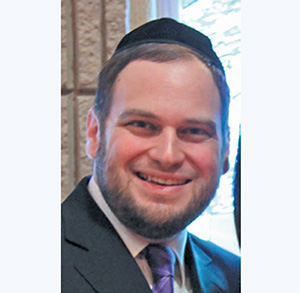
Boy, was I glad my son didn’t speak Hebrew! A few years back we were in Israel for a family simcha, and I wanted to bring my son to meet a few of my teachers who were important to me during my time in yeshiva. As we were walking around the yeshiva, I was greeted by one of my old teachers with a warm smile and a handshake. His next words, however, made my mouth open in astonishment while I cringed at the same time. He said, “You look like you gained weight.” I chuckled in response and he did as well, but inside I was deeply hurt. My son, thankfully, didn’t understand what had happened, but I was really surprised. Many of us, as children, when insulted by someone were comforted with the words “sticks and stones may break your bones but names can never harm you.”
A 2011 study by the National Academy of Sciences found that social rejection shares somatosensory representations with physical pain. This means that when we are insulted or rejected by someone, our pain is similar to the physical pain we may experience when we are hurt. The teacher in question may have not realized how his words disappointed me at that moment, but the result was that I abandoned our relationship. I was so shocked at that time that I did not have the courage to tell him how disappointed I was. Doing so would have offered him the ability to make amends with me. Yet, I left things where they were and proceeded on with my day. We are not always comfortable telling people how we feel about them, especially when they hurt us. This is not only true of distant connections but even of close and intimate relationships. Our ability to create a sense of safety in any relationship affords us the possibility of being tipped off when we may inadvertently hurt someone else. Many relationships suffer from this lack of safety and, as a result, a lack of healthy, open communication.
Rav Dovid Tzvi Baumol, zt”l, asked a question on the Megilla based on the work of the Maharsham, zt”l. He wondered how it was that Achashverosh offered wine to the guests at his party from golden vessels. Chazal explain to us that the vessels used were those from the Beit Hamikdash, which is the reason why the pasuk describing the event is read to the tune of Eicha. He develops his question based on the Maharsham’s comment on the Gemara in Nedarim (50b). The Gemara relates a difficult confrontation that took place between the daughter of the Caesar and Rabbi Yehoshua ben Chananya. The Caesar’s daughter questioned Rabbi Yehoshua about his incredible Torah prowess and wondered how the “beautiful” Torah could be housed in such an ugly vessel. One could only imagine the humiliation Rabbi Yehoshua felt when being asked such a question. Rabbi Yehoshua responded to her with a suggestion that he requested she ask of her father, the Caeser. He instructed her to tell her father to take all the wine he was aging in earthenware vessels and transfer them to gold and silver vessels. She followed Rabbi Yehoshua’s suggestion and all of the wine spoiled. Rabbi Yehoshua’s lesson was clear: the Torah is preserved in any vessel regardless of its physical beauty. The less beautiful the vessel, the better the Torah was preserved.
Rav Baumol, zt”l, answers his query by suggesting that Achashverosh must have only served the wine in gold vessels, although it must have been stored in earthenware vessels for aging. This story contains a number of valuable lessons. Hashem created all of us according to His extraordinary crafting. He wishes for all of us to serve Him and sees no difference in the vanity of human physicality. In addition, as we celebrate Purim, the most joyous holiday of the year, let’s be sure to keep in mind the dignity of others. Our rabbis teach us that Purim is a time in which we engage in physical pleasure, such as enjoying a festive meal and ensuring that others can do the same. These rituals come as a response to our survival in the face of physical annihilation. While we express our joy with those around us, let’s make sure that our laughing never comes at someone else’s expense. May we all experience a state of simcha that lasts throughout the year, and avoid a mistake that can cause pain for someone else all year long. Purim sameach!
By Rabbi Eliezer Zwickler, LCSW
Rabbi Eliezer Zwickler is rabbi of Congregation AABJ&D in West Orange, New Jersey, and is a licensed clinical social worker in private practice. Rabbi Zwickler can be reached at [email protected].








